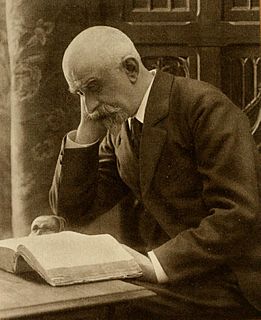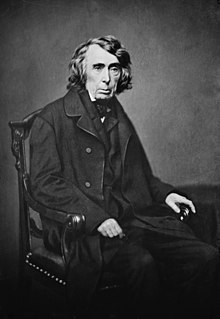A Quote by Walter Lippmann
The decay of decency in the modern age, the rebellion against law and good faith, the treatment of human beings as things, as the mere instruments of power and ambition, is without a doubt the consequence of the decay of the belief in man as something more than an animal animated by highly conditioned reflexes and chemical reactions. For, unless man is something more than that, he has no rights that anyone is bound to respect, and there are no limitations upon his conduct which he is bound to obey.
Quote Topics
Against
Age
Ambition
Animal
Animated
Anyone
Beings
Belief
Bound
Chemical
Chemical Reactions
Conditioned
Conduct
Consequence
Decay
Decency
Doubt
Faith
Good
Good Faith
Highly
His
Human
Human Being
Human Beings
Instruments
Law
Limitations
Man
Mere
Modern
Modern Age
More
Obey
Power
Reactions
Rebellion
Reflexes
Respect
Rights
Something
Than
Things
Treatment
Unless
Which
Without
Related Quotes
Is the Reformed faith opposed to human rights? Yes, very much so. It is not human rights but Divine law which is the foundation of liberty and the safeguard against tyranny. It is not something proceeding from man (rights), but something proceeding from God (revealed law) which is to order Christian society.
To be 'for animals' is not to be 'against humanity.' To require others to treat animals justly, as their rights require, is not to ask for anything more nor less in their case than in the case of any human to whom just treatment is due. The animal rights movement is a part of, not opposed to, the human rights movement. Attempts to dismiss it as anti human are mere rhetoric.
Nothing about his life is more strange to [man] or more unaccountable in purely mundane terms than the stirrings he finds in himself, usually fitful but sometimes overwhelming, to look beyond his animal existence and not be fully satisfied with its immediate substance. He lacks the complacency of the other animals: he is obsessed by pride and guilt, pride at being something more than a mere animal, built at falling short of the high aims he sets for himself.
The Universal Declaration of Human Rights recognizes that 'if man is not to be compelled to have recourse, as a last resort, to rebellion against tyranny and oppression', human rights should be protected by the rule of law. That just laws which uphold human rights are the necessary foundation of peace and security would be denied only by closed minds which interpret peace as the silence of all opposition and security as the assurance of their own power.
Many people correctly make the point that our only hope is to turn to God. For example, Charles Lindbergh, who said that in his young manhood he thought "science was more important than either man or God," and that "without a highly developed science modern man lacks the power to survive," . . . went to Germany after the war to see what Allied bombing had done to the Germans, who had been leaders in science. There, he says, "I learned that if his civilization is to continue, modern man must direct the material power of his science by the spiritual truths of his God."
The belief that man is an irresolute creature pulled this way and that by two forces of equal strength, alternately winning and losing the battle for his soul; the conviction that human life is nothing more than an uncertain struggle between heaven and hell; the faith in two opposed entities, Satan and Christ - all this was bound to engender those internal discords in which the soul, excited by the incessant fighting, stimulated as it were by the constant promises and threats, ends up by giving in and prostitutes itself to whichever of the two combatants has been more obstinate in its pursuit.
Viewing the man from the genuine abolitionist ground, Mr. Lincoln seemed cold, tardy, weak and unequal to the task. But, viewing him from the sentiments of his people, which as a statesman he was bound to respect, then his actions were swift, bold, radical and decisive. Taking the man in the whole, balancing the tremendous magnitude of the situation, and the necessary means to ends, Infinite Wisdom has rarely sent a man into the world more perfectly suited to his mission than Abraham Lincoln.
Savings represent much more than mere money value. They are the proof that the saver is worth something in himself. Any fool can waste; any fool can muddle; but it takes something more of a man to save and the more he saves the more of a man he makes of himself. Waste and extravagance unsettle a man's mind for every crisis; thrift, which means some form of self-restraint, steadies it.
This future man, whom the scientists tell us they will produce in no more than a hundred years, seems to be possessed by a rebellion against human existence as it has been given, a free gift from nowhere (secularly speaking), which he wishes to exchange, as it were, for something he has made himself.
The ordinary man is living a very abnormal life, because his values are upside down. Money is more important than meditation; logic is more important than love; mind is more important than heart; power over others is more important than power over one's own being. Mundane things are more important than finding some treasures which death cannot destroy.
The human condition comprehends more than the condition under which life has been given to man. Men are conditioned beings because everything they come in contact with turns immediately into a condition of their existence. The world in which the vita activa spends itself consists of things produced by human activities; but the things that owe their existence exclusively to men nevertheless constantly condition their human makers.
We hear in these days a great deal respecting rights--the rights of private judgment, the rights of labor, the rights of property, and the rights of man. Rights are grand things, divine things in this world of God's; but the way in which we expound these rights, alas! seems to me to be the very incarnation of selfishness. I can see nothing very noble in a man who is forever going about calling for his own rights. Alas! alas! for the man who feels nothing more grand in this wondrous, divine world than his own rights.
If idioms are more to be born than to be selected, then the things of life and human nature that a man has grown up with--(not that one man's experience is better than another's, but that it is 'his.')--may give him something better in his substance and manner than an over-long period of superimposed idiomatic education which quite likely doesn't fit his constitution. My father used to say, 'If a poet knows more about a horse than he does about heaven, he might better stick to the horse, and some day the horse may carry him into heaven'

































